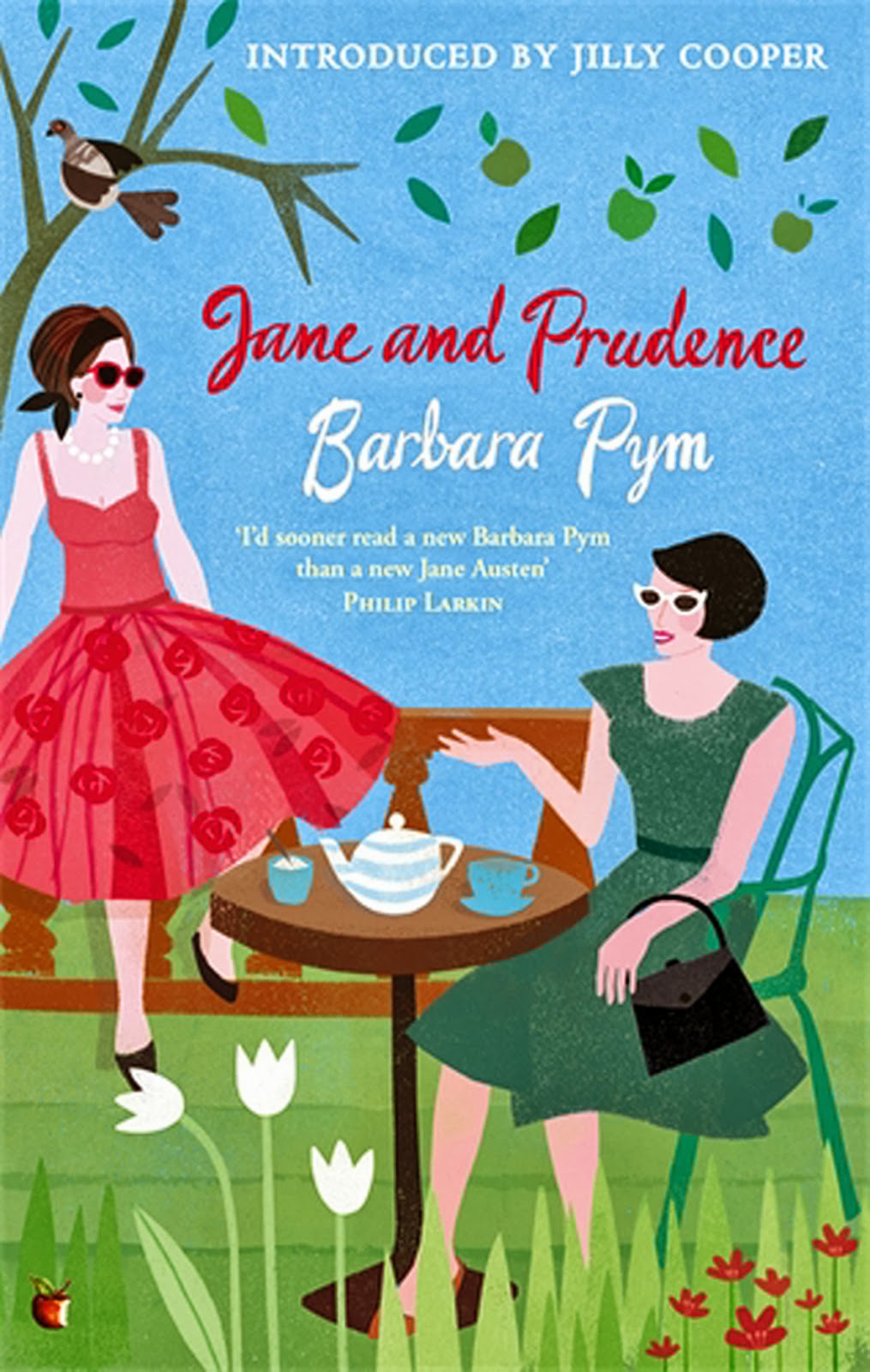 Staff Review by Chris Saliba
Staff Review by Chris SalibaBarbara Pym's third novel continues the author's themes of love, marriage and the status of women.
Jane and Prudence (1954) was British novelist Barbara Pym’s third novel, following on from her witty Excellent Women. One Barbara Pym novel is pretty much the same as another, yet if her style is your cup of tea, then her books become a fabulous addiction.
Pym's style could almost be described as stream-of-consciousness, yet her engaging manner is the antidote to Virigina’s Woolf’s intense personal interiors. (In one of Pym’s novels she almost spoofs Woolf by having one of her characters say she would like to write a stream-of-consciousness novel about a woman standing at the sink with her hands plunged in the dish water doing the washing up.)
The great thing about Barbara Pym is that she is here to tell you the plain truth: life isn’t full of transcendental possibilities, rather it’s consumed with boring domestic realities, especially for women, who must not only carry the burden of these chores, but also continually prop up fragile male egos. I suspect that the reason for the ongoing success of Pym’s novels is their honesty and faithful descriptions of English parish life in the middle part of the twentieth century. Pym never shies away from the embarrassingly plain realities of life. And where most of us lie to ourselves in some manner, about our prospects or abilities, Pym never does. She’s almost cruelly honest with herself.
The basic story of Jane and Prudence is about a friendship between two women. Jane is a vicar’s wife who has just turned 40, while her friend Prudence is 29 and works in an office. Jane, her husband Nicolas and daughter, Flora, move into a new parish and there meet Fabian Driver. Fabian is a rather morally flimsy character. His wife, Constance, has recently died, but the reader learns that he was notoriously unfaithful to her during their marriage. Overlooking these obvious faults, Jane thinks he might be a good match for Prudence. Yet Prudence already has her own unsuitable love interest, her rather dowdy boss Arthur Grampian. Grampian is married and hence completely out of reach, but Prudence likes to enjoy the fantasy rather than having to seriously contemplate the reality of a relationship.
All the plot machinations in the end result in a whimper rather than a bang. Jane’s plans for a romance between Prudence and Fabian don’t quite come off as she’d expected. In fact, all goes quite awry. Prudence, however, takes all in her stride and avoids the pains of reality by giving her soul the soothing balm of fantasy and reverie. She prefers to live a life of pleasant contemplation rather put herself through the meat grinder of reality, which is always certain to disappoint.
From what biographical details we have of Barbara Pym’s life, we know she was terribly dissapointed in love, had several relationships with men and never married. Her novels point to her taking a very philosophical view of love and relationships. If the main characters in her novels are anything to go by, she knew that women fatally idealised marriage as a perfect or greatly elevated state of being, whereas reality proved something different entirely. Pym seems to be saying it’s better to keep the fantasy of marriage and avoid the reality, because perfectly wonderful marriages don't exist.
Jane and Prudence is not as funny or wryly humoured as her two previous novels, Some Tame Gazelle and Excellent Women, but it perhaps has more depth of character and a deeper consciousness than those two brilliant predecessors.
Jane and Prudence, by Barbara Pym. Published by Virago Classics. ISBN: 9781844084494 RRP: $24.99
No comments:
Post a Comment